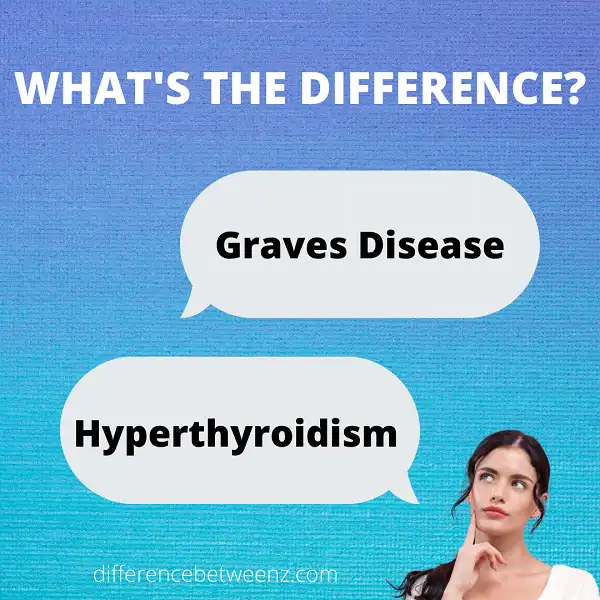Most people are familiar with the term “hyperthyroidism,” but might not know what it actually is. Hyperthyroidism is a condition caused by an overactive thyroid gland, which results in the production of too much thyroid hormone. This can lead to a wide range of symptoms, including weight loss, anxiety, and heart problems. However, there is another condition that is often confused with hyperthyroidism – Graves disease. So what’s the difference between Graves disease and hyperthyroidism?
What is Graves Disease?
Graves disease is an autoimmune disorder that results in the overproduction of thyroid hormones. The exact cause of the disease is unknown, but it is believed to be the result of a combination of genetic and environmental factors. symptoms of Graves disease include weight loss, anxiety, irritability, and difficulty sleeping. If left untreated, the disease can lead to serious complications such as heart problems and osteoporosis. While there is no cure for Graves disease, it can be effectively managed through medication and lifestyle changes. With proper treatment, most people with Graves disease are able to live normal, healthy lives.
What is Hyperthyroidism?
Hyperthyroidism is a condition in which the thyroid gland produces too much thyroid hormone. This hormone regulates the body’s metabolism, so an overproduction can lead to a number of symptoms, including weight loss, increased heart rate, anxiety, and irritability. While hyperthyroidism can be mild and easily managed, it can also be more severe and require treatment with medication or surgery. In rare cases, it can even be life-threatening.
Difference between Graves Disease and Hyperthyroidism
Graves’ disease and hyperthyroidism are both disorders of the thyroid gland. Graves’ disease is an autoimmune disorder in which the body’s immune system attacks the thyroid gland, causing it to produce too much thyroid hormone. Hyperthyroidism, on the other hand, is a condition in which the thyroid gland produces too much thyroid hormone for no specific reason.
Both Graves’ disease and hyperthyroidism can cause a variety of symptoms, including weight loss, anxiety, and fatigue. However, Graves’ disease is also associated with a goiter (an enlargement of the thyroid gland) and bulging eyes (a condition called exophthalmos).
Treatment for Graves’ disease typically involves taking medications to reduce the production of thyroid hormone, while treatment for hyperthyroidism typically involves taking medications to block the action of thyroid hormone or surgically removing part or all of the thyroid gland.
Conclusion
Both Graves disease and Hyperthyroidism are caused by an overactive thyroid gland, but there are some key differences between the two conditions.
- Graves disease is a result of antibodies that attack the thyroid gland, while Hyperthyroidism is typically due to a benign tumor on the thyroid gland.
- Graves disease symptoms can be more severe than Hyperthyroidism symptoms, and can include muscle weakness, difficulty breathing, and eye problems.
- Hyperthyroidism can often be treated with medication, while Graves disease may require surgery or radiation therapy.


